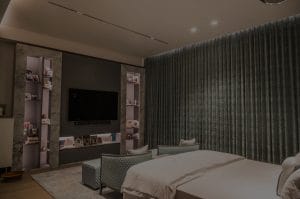**Feng Shui Ornaments for Improved Sleep: Create a Restful Bedroom Environment**
**Abstract:** Discover how Feng Shui ornaments can enhance your sleep quality by transforming your bedroom into a serene sanctuary. Explore practical tips to create a restful environment.
Understanding Feng Shui Principles for Sleep
Feng Shui, an ancient Chinese practice, emphasizes harmony between individuals and their surroundings. When applied to your bedroom, it focuses on creating a tranquil space that promotes restful sleep. The arrangement of furniture, colors, and the presence of specific ornaments can significantly influence your mood and energy levels. By understanding these principles, you can design a bedroom that not only looks good but also fosters relaxation and rejuvenation.
Choosing the Right Ornaments for Your Space
When selecting Feng Shui ornaments, it’s essential to consider their shapes, colors, and materials. Soft, rounded shapes are believed to promote a calming energy, while sharp angles can create tension. Opt for soothing colors like blues, greens, and pastels, which are known to evoke tranquility. Materials like wood and natural fibers can enhance the grounding effect, making them ideal choices for bedroom decor. By thoughtfully choosing these elements, you can create a more peaceful atmosphere conducive to sleep.
The Power of Plants in Your Bedroom
Incorporating plants into your bedroom decor can significantly enhance the energy of the space. Plants like lavender, jasmine, and peace lilies not only purify the air but also contribute to a sense of calm. The scent of lavender, in particular, is known for its sleep-inducing properties. Placing these plants in strategic locations around your bedroom can help create a restful environment, promoting relaxation and improving your overall sleep quality.
Using Crystals for Enhanced Sleep
Crystals are powerful tools in Feng Shui, each possessing unique energies that can aid in sleep improvement. Amethyst, for instance, is known for its calming properties, making it a perfect choice for your bedside table. Rose quartz promotes love and tranquility, while moonstone enhances intuition and emotional balance. By placing these crystals in your bedroom, you can harness their energies to create a more peaceful and restful sleeping environment.
Creating a Balanced Bedroom Layout
The layout of your bedroom plays a crucial role in your ability to relax and sleep well. A balanced layout encourages positive energy flow, while a cluttered space can lead to feelings of stress and anxiety. Position your bed in a commanding position, where you can see the door without being directly in line with it. This arrangement fosters a sense of security and control. Additionally, decluttering your space and keeping it organized will help maintain a serene environment that promotes better sleep.
Incorporating Soft Lighting for Relaxation
Lighting can significantly impact your mood and sleep quality. Harsh, bright lights can disrupt your body’s natural sleep-wake cycle, while soft, ambient lighting creates a calming atmosphere. Consider using dimmable lamps, fairy lights, or candles to provide a warm glow in your bedroom. These lighting options not only enhance the aesthetic appeal but also signal to your body that it’s time to wind down, encouraging a more restful sleep.
Personalizing Your Sleep Sanctuary
Ultimately, the most effective Feng Shui ornaments are those that resonate with you personally. Incorporate items that evoke positive memories or emotions, such as photographs or heirlooms. Personal touches create a sense of belonging and comfort, which are vital for a restful sleep environment. Remember, your bedroom should be a sanctuary that reflects your unique personality and fosters a sense of peace and relaxation.
By thoughtfully integrating Feng Shui ornaments into your bedroom, you can significantly enhance your sleep quality and overall well-being. With a focus on harmony, balance, and personal resonance, you can create a restful environment that nurtures your mind and body, leading to more restorative sleep.










